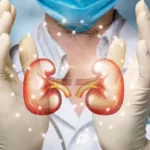The Best Fluffy Pancakes recipe you will fall in love with. Full of tips and tricks to help you make the best pancakes.
Are you dealing with the discomfort and pain of a tonsil infection? While a tonsil infection can be quite unpleasant, there are several effective at-home treatments that can help alleviate your symptoms and promote healing. Understanding the causes and symptoms of tonsil infections is crucial in knowing how to effectively address them.
From drinking warm liquids to resting your voice, this article will delve into the various at-home treatments for tonsil infections, as well as provide insights into the best and worst foods and drinks for your condition. We will discuss when it’s necessary to seek medical advice and provide guidance on the recovery process. If you’re looking for practical and accessible ways to manage your tonsil infection from the comfort of your home, you’ve come to the right place. Let’s explore how you can take charge of your tonsil infection and pave the way for a smoother recovery.
Key Takeaways:
- Drinking warm liquids, eating cold foods, and gargling with saltwater can help alleviate the symptoms of tonsil infection at home.
- Using a humidifier, resting the voice, and taking over-the-counter pain relievers can also provide relief.
- It is important to know the best and worst foods to consume during a tonsil infection, and to seek medical advice if symptoms persist or worsen.
How to Treat a Tonsil Infection at Home
Tonsil infection, also known as tonsillitis, can be effectively managed at home with the right treatments and care. It is essential to understand the causes, symptoms, and available home remedies for tonsil infection to provide relief and aid recovery.
Tonsil infections, typically caused by viruses or bacteria, manifest with symptoms like sore throat, difficulty swallowing, fever, and swollen lymph nodes. The use of home remedies such as saltwater gargles, herbal teas, and throat lozenges can help alleviate discomfort and reduce inflammation. In cases where the infection is bacterial, antibiotic treatment prescribed by a healthcare professional may be necessary to effectively combat the infection.
Understanding Tonsil Infection
Understanding tonsil infection is crucial for recognizing its symptoms, identifying the underlying causes, and determining appropriate treatment methods.
Causes and Symptoms
Tonsil infection can be caused by both bacterial and viral agents, leading to symptoms such as throat pain, difficulty swallowing, fever, and swollen tonsils.
Regarding children, tonsil infections are quite common due to their developing immune systems and frequent exposure to pathogens. Bacterial tonsillitis is often associated with specific pathogens such as Streptococcus bacteria, while viral infections can be caused by various viruses like adenovirus or Epstein-Barr virus. Both types of infections can result in similar symptoms, making it essential for healthcare providers to perform a thorough evaluation to determine the appropriate treatment.
At-Home Treatments for Tonsil Infection
Implementing effective at-home treatments is paramount for managing tonsil infection and alleviating associated discomfort. These treatments include various methods that can provide relief and aid in the recovery process.
Drinking Warm Liquids
Consuming warm liquids, such as herbal teas or broths, can help soothe throat pain and provide relief from tonsil infection symptoms.
The warmth of these liquids can help increase blood circulation in the affected area, promoting faster healing.
Warm liquids can keep the throat hydrated and prevent dryness and irritation, which are common during tonsil infection. The soothing effect of warm beverages can also help relax the muscles in the throat, reducing discomfort and making it easier to swallow.
Warm liquids can help to loosen mucus and phlegm, providing temporary relief from congestion and coughing, which are often associated with tonsil infection. Incorporating warm liquids into the diet can play a significant role in managing tonsil infection symptoms.
Eating Cold Foods
Consuming cold foods, such as ice cream or popsicles, can help numb the throat and reduce inflammation associated with tonsil infection.
When cold foods are consumed, they can provide a soothing effect on the inflamed tonsils due to their ability to constrict blood vessels, thereby reducing swelling and discomfort. The cold temperature also helps in numbing the pain receptors in the throat, offering temporary relief. Cold foods can help in keeping the body temperature down, preventing further aggravation of the infection. It’s important to note that while cold foods can provide relief, they should be balanced with other nourishing and hydrating options to ensure overall well-being during tonsil infection.
Gargling with Saltwater
Gargling with saltwater can help reduce throat inflammation and provide temporary relief from the discomfort of tonsil infection.
When salt is dissolved in warm water, it creates a therapeutic solution that can effectively cleanse the throat and reduce the build-up of harmful bacteria. This natural remedy works by drawing out excess fluid from the inflamed tissue, thereby reducing swelling and relieving pain. The saltwater solution helps to loosen mucus and phlegm, making it easier to expel toxins and irritants from the throat. By promoting a healthy environment, gargling with saltwater also supports the body’s natural healing processes, aiding in the recovery from tonsil infections.
Using a Humidifier
Using a humidifier in the home environment can help maintain moisture levels and prevent throat dryness, which is beneficial for individuals with tonsil infection.
For those suffering from tonsil infection, a humidifier can play a crucial role in alleviating discomfort and promoting faster recovery. The moist air created by the humidifier helps soothe the irritated throat, reducing pain and irritation. It can prevent the throat from becoming excessively dry, which can impede the body’s natural healing processes and prolong the duration of the infection.
Resting the Voice
Resting the voice is essential for individuals with tonsil infection, as it aids in the healing process and supports the body’s immune response.
When the tonsils are infected, they are already under considerable stress, so the added strain of continuous speaking or singing can hamper the recovery process. Voice rest allows the inflamed tonsils to heal without being further irritated by vocal cord vibrations. By avoiding unnecessary vocal efforts, individuals can conserve their energy, allowing the immune system to focus on combatting the infection. This ultimately accelerates the healing process and reduces the risk of complications.
Over-the-Counter Pain Relievers
Over-the-counter pain relievers, such as acetaminophen or ibuprofen, can help alleviate throat pain and reduce fever associated with tonsil infection.
These medications work by targeting the areas of the brain that perceive pain and regulate body temperature. By doing so, they provide relief from the discomfort and high body temperature commonly experienced with tonsil infection. Additionally,
- acetaminophen is widely preferred for its fever-reducing properties.
- ibuprofen also helps to reduce inflammation in the affected area, further enhancing the relief.
Their availability over-the-counter makes them easily accessible for quick symptom management, offering convenience to individuals dealing with tonsil infection.
Medicated Throat Lozenges and Sprays
Medicated throat lozenges and sprays can provide targeted relief for throat discomfort and aid in managing the symptoms of tonsil infection.
These products contain menthol and other soothing ingredients that can help ease soreness, irritation, and inflammation in the throat.
The medicated throat lozenges gradually release active ingredients that directly coat the tonsils and surrounding areas, offering prolonged relief from pain and discomfort.
On the other hand, the throat sprays deliver a fine mist of soothing and relieving substances directly to the affected area, providing quick relief from pain and irritation.
What to Eat and Drink with Tonsil Infection
Choosing the right foods and drinks is essential for individuals with tonsil infection, as certain choices can either alleviate or exacerbate the symptoms.
Best and Worst Foods and Drinks
Certain foods and drinks, such as warm soups and hydrating beverages, can provide relief and comfort for those with tonsil infection, while spicy or acidic items should be avoided to prevent irritation.
When suffering from tonsil infection, individuals should prioritize consuming soothing and easy-to-swallow foods that can help alleviate discomfort and inflammation. Opting for smoothies and soft fruits can provide necessary nutrients while being gentle on the throat.
On the other hand, it’s crucial to steer clear of spicy foods and citrus fruits as they can aggravate the already sensitive tonsils and intensify the pain. Similarly, carbonated drinks and alcoholic beverages should be avoided, as they can cause further discomfort and hinder the recovery process.
When to Seek Medical Advice
Seeking medical advice is imperative for individuals with tonsil infection, especially if the symptoms worsen or if there are concerns about potential complications.
Recovery and Outlook
The recovery process for tonsil infection involves adequate rest, adherence to prescribed treatment, and monitoring for any potential complications, ultimately leading to a positive outlook for healing and recovery.
Frequently Asked Questions
How can I effectively treat a tonsil infection at home?
To effectively treat a tonsil infection at home, you can try gargling with warm salt water, drinking plenty of fluids, getting enough rest, and taking over-the-counter pain relievers.
What is the best way to gargle with warm salt water for a tonsil infection?
To gargle with warm salt water, mix 1 teaspoon of salt in 8 ounces of warm water. Gargle for 30 seconds, then spit out the water. Repeat several times a day to help reduce swelling and pain in your tonsils.
Can I use natural remedies to treat a tonsil infection at home?
Yes, there are several natural remedies that can help treat a tonsil infection at home. These include drinking warm tea with honey, eating raw garlic, and using essential oils like tea tree or peppermint.
How important is getting enough rest when treating a tonsil infection at home?
Getting enough rest is crucial when treating a tonsil infection at home. Rest allows your body to focus on fighting the infection and can help speed up the healing process.
Is it safe to take over-the-counter pain relievers for a tonsil infection at home?
Yes, it is safe to take over-the-counter pain relievers like ibuprofen or acetaminophen to help reduce pain and discomfort associated with a tonsil infection. Just be sure to follow the recommended dosage on the label.
When should I seek medical attention for a tonsil infection?
If your symptoms do not improve after a few days of at-home treatment or if they worsen, it is important to seek medical attention. Also, if you develop a high fever, have difficulty swallowing or breathing, or experience severe pain, you should see a doctor as soon as possible.








